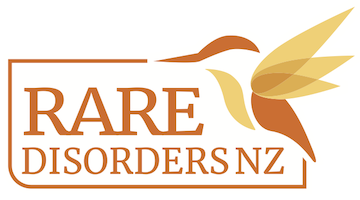Media release: Health access must be based on need not diagnosis as disease does not discriminate

Rare Disorders NZ (RDNZ) supports Patient Voice Aotearoa’s nationwide ‘Lie Down for Life’ to call for better access to modern medicines for genetic, undiagnosed and rare disorders.
“Anyone, anytime, could find themselves or a loved one having to cope with the symptoms of a genetic rare disorder,” says RDNZ Chief Executive Lisa Foster. “It makes no sense to provide access to medicine based on greatest numbers. All children and adults deserve access to assessed medications that can improve their lives.”
“That’s why our genetic, undiagnosed and rare disorder collective will stand alongside the families dealing with disease types such as cancer, or common chronic illnesses such as diabetes or epilepsy, to call for reform and funding to ensure that everyone can access the best medicines available,” says Lisa.
New Zealand ranks last out of 20 OECD countries for its overall market access to modern medicines and spend per capita.
“Ignoring these disturbing facts means we will stagnate as a country when it comes to access to life-changing drugs. Rare conditions that are unable to be effectively treated place huge costs on the healthcare system, and often result in an inability for people to work, study, fulfil social obligations and participate fully in the community. Our current medicines model is based on a short-sighted and outdated vision with dire consequences for many New Zealanders,” says Lisa.
While 1 in 17 people live with a rare disorder, there are only a small percentage, around 4-5%, that have any medicines available. Many of the medicines for rare conditions are at the cutting edge of innovation and more expensive than older, bulk medications; this leads to an issue of access within PHARMAC’s system which is based on saving money and getting the best deal for the most people.
“Other countries watch in disbelief at New Zealand’s disregard of the genetic, undiagnosed and rare community and it is reflected in the reduction (by half) in our funding to a minuscule amount despite representing 300,000 New Zealanders,” says Lisa.
Examples of medicines for rare illnesses include a treatment for Pompe Disease, Myozome, which is funded in 76 other countries; a life-changing drug for Cystic Fibrosis named Trikafka; and Spinraza for Spinal Muscular Atrophy.
International evidence shows that rare disorders need specific pathways and policies, and taking action makes economic, social and moral sense. New Zealanders are shocked to learn that New Zealand lags behind most OECD countries in supporting people living with rare disorders to access vital health and social care.
RDNZ, and their collective of more than 100 rare disorder support groups, are calling for systemic changes to ensure people living with a rare disorder are acknowledged within our healthcare system. The Fair for Rare NZ campaign seeks acknowledgement of the common challenges facing the rare disorder community through the development of a National Rare Disorder Framework. A petition was handed to Parliament on 24 March 2021 and is currently under review by the Health Select Committee.
Post your comment
Comments
No one has commented on this page yet.
RSS feed for comments on this page | RSS feed for all comments